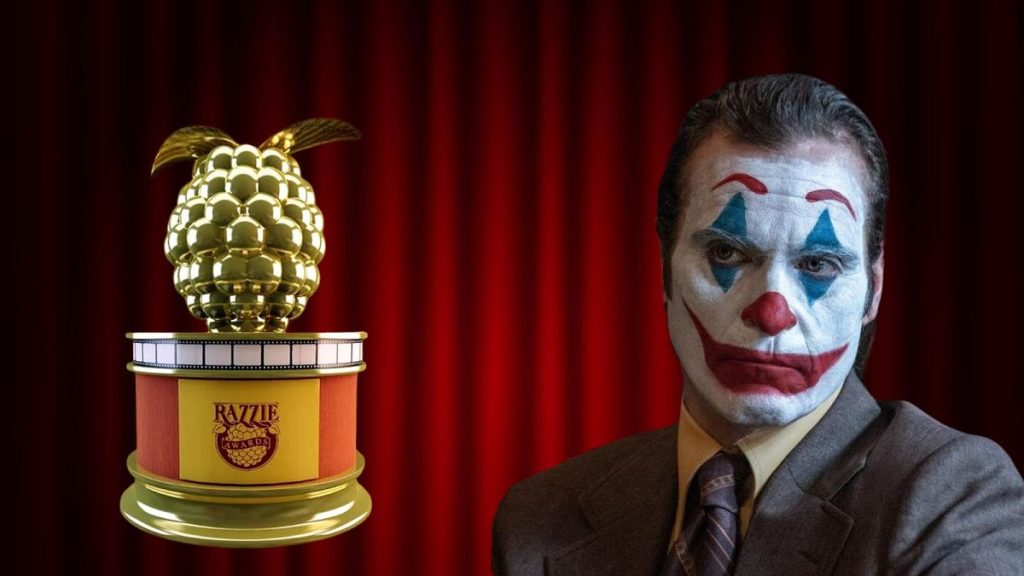The Golden Raspberry Awards, better known as the Razzies, have announced their nominations for the "worst" films of 2024, offering a satirical counterpoint to the upcoming Academy Awards. While often dismissed as a frivolous exercise in negativity, the Razzies have a long history of targeting both critical and commercial failures, occasionally landing some surprisingly accurate punches amidst their more questionable choices. This year’s nominations feature a mix of high-profile flops and surprising inclusions, highlighting the unpredictable nature of both filmmaking and critical reception.
Leading the pack is Joker: Folie à Deux, the sequel to the Oscar-winning Joker, with a whopping seven nominations. This dramatic shift in fortunes underscores the fickle nature of public opinion and the potential pitfalls of revisiting successful properties. The film’s nominations include Worst Picture, Worst Actor for Joaquin Phoenix, and Worst Actress for Lady Gaga, suggesting a widespread disappointment with the sequel’s execution. The Razzies echoed the general critical sentiment that the film was a monotonous and underwhelming follow-up, failing to capture the intrigue and impact of its predecessor.
Trailing close behind with six nominations is Francis Ford Coppola’s ambitious but ultimately disastrous Megalopolis. This self-financed epic, which debuted at Cannes, has been widely regarded as a critical and commercial bomb. The Razzies have recognized its failings with nominations for Worst Picture, Worst Director, and Worst Supporting Actor for Jon Voight, among others. Critics described the film as a convoluted and indulgent mess, a far cry from Coppola’s earlier masterpieces.
The remaining nominees for Worst Picture include Borderlands, starring Cate Blanchett, the poorly received Spider-Man spin-off Madame Web, and Reagan, featuring Dennis Quaid as the former president. These films represent a diverse range of genres and budgets, united by their shared failure to resonate with audiences and critics. Borderlands, in particular, garnered attention for its misfire in adapting a popular video game franchise, while Madame Web struggled to find its footing within the larger Spider-Man universe.
Beyond the Worst Picture category, the Razzies have singled out several high-profile actors for their “less-than-stellar” performances. Joining Phoenix and Gaga in the acting categories are Cate Blanchett for Borderlands, Jennifer Lopez for Atlas, and Dennis Quaid for Reagan. The nominations highlight the fact that even talented actors are not immune to appearing in poorly received films. Interestingly, Jon Voight stands out with a remarkable four nominations, spread across several different movies, solidifying his unfortunate position as a Razzie favorite.
The Razzies also acknowledge specific aspects of filmmaking, such as writing and directing. Joker: Folie à Deux, Kraven the Hunter, Madame Web, Megalopolis, and Reagan all compete for Worst Screenplay. This category often reflects the perceived weaknesses in a film’s narrative structure, dialogue, and overall coherence. Similarly, the Worst Director category targets the individuals responsible for the overall vision and execution of a film, with S.J. Clarkson (Madame Web), Francis Ford Coppola (Megalopolis), Todd Phillips (Joker: Folie à Deux), Eli Roth (Borderlands), and Jerry Seinfeld (Unfrosted) all vying for the dubious honor.
The Razzies’ broader categories, such as Worst Screen Combo and Worst Prequel, Remake, Rip-Off or Sequel, offer further opportunities for the organization to poke fun at Hollywood’s missteps. These nominations often highlight awkward pairings, ill-conceived sequels, and uninspired remakes that failed to capture the magic of the originals. The Crow, Joker: Folie à Deux, Kraven the Hunter, Mufasa: The Lion King, and Rebel Moon – Part Two: The Scargiver all compete in the latter category, demonstrating the challenges of building upon existing intellectual property. The Razzie nominations, while satirical, ultimately reflect a broader conversation about the successes and failures of the film industry, highlighting the subjective nature of art and the challenges of consistently delivering quality entertainment. They serve as a reminder that even in the world of glitz and glamour, not every film can be a winner.














